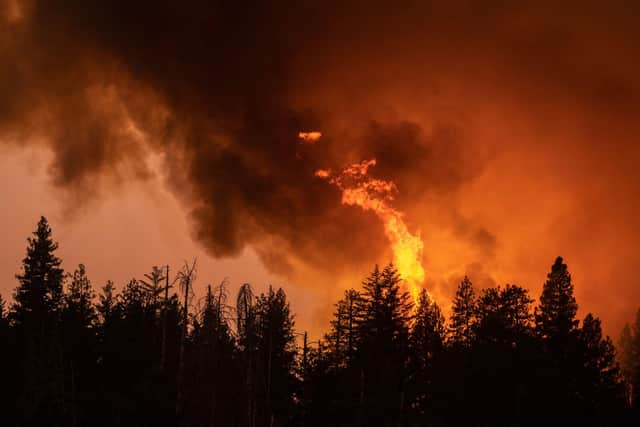Climate change: Why Scottish Government's net-zero emissions plan could be challenged in court – Dr Richard Dixon
I’ve written before about some of the many legal challenges that are forcing fossil fuel companies and governments to do more on climate change.
From Dutch and German court judgments that mean those governments must reduce emissions more quickly to the case which means Shell has to change its strategy, legal rulings are producing results that politicians and chief executives have failed to deliver. And just this week Greenpeace began a case against the UK Government’s approval of the massive Jackdaw gas field development.
Advertisement
Hide AdAdvertisement
Hide AdLast week’s ruling says that the UK Government’s net-zero strategy is unlawful. This plan for how the UK will reach net-zero emissions by 2050 does not contain sufficient detail for the government, the UK Parliament or the public to judge whether it is credible.
It will have to be rewritten to spell out the expected emission reductions from each included policy, acknowledge that there is a gap between those policies and meeting the 2050 target, and explain how that gap is going to be filled. It will need to be revised by the end of next March and resubmitted to Westminster.
The case was brought by Friends of the Earth, ClientEarth, the Good Law Project and an individual campaigner. This big success challenging the UK’s climate plans could lead to a similar challenge to the equivalent Scottish plans.
In Scotland, we also have a plan to deliver our own, even more ambitious, target of net zero by 2045. The climate change plan, written in 2018 and updated in 2021, has also been criticised for lacking detail on the policies included.


The views of the government’s advisors, the Climate Change Committee, were crucial in the High Court judgement on the UK strategy. Of the current Scottish plan, their chair has said “clarity and transparency on policy, supported with detail on how these policies will be delivered has been lacking”.
They also said the suggestion that carbon capture and storage (CCS) would be reducing emissions towards the end of this decade was a brave assumption and the Scottish Government needed a plan B in case this did not happen.
When several committees of MSPs examined the Scottish strategy, they called for more detail on exactly what would happen when – and also for a plan B on CCS. The government’s own recent progress report admitted that a viable CCS system was not going to happen any time soon.
So, if it had been a great plan, with loads of detail, it has now got a big hole in it.
Advertisement
Hide AdAdvertisement
Hide AdAnother climate change plan is being written but a draft is not expected in the Scottish Parliament until the autumn of next year. No doubt the High Court judgement will be concentrating the minds of civil servants on putting as much detail as possible into the new version.
In the meantime, it will be interesting to see if any Scottish groups are sufficiently encouraged by the legal success down south to take a challenge against the current Scottish plan.
Dr Richard Dixon is an environmental campaigner and consultant
